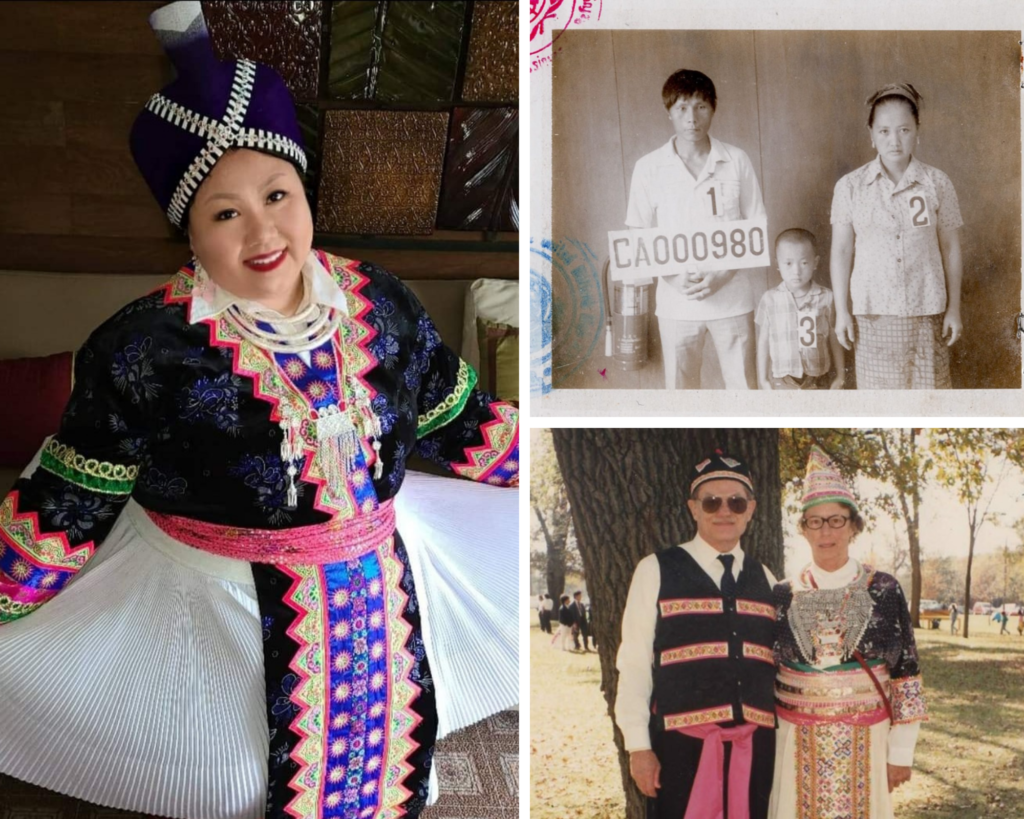My Hmong American Experience
A story about reconnecting with and celebrating Hmong culture in honor of Hmong American Day, May 14th.

By Bee Vue Yang
Southeast Asian Coordinator
Sexual Assault Center of Family Services
I’m a first-generation Hmong American. It still sounds a little awkward when I identify as just “Hmong” to Hmong elders because sometimes I struggle with the Hmong language. The Hmong language is not my native language. I was born in La Crosse, Wisconsin, the largest city on Wisconsin’s western boarder along the Mississippi River (51,000+ people). My parents and older brother immigrated to the United States and they settled there in 1987. You are probably wondering why La Crosse, Wisconsin? Well, our sponsors, Grandma and Grandpa Bailey lived there.
I was born in 1988, a year after my family settled in La Crosse. There are faint memories of playing with other Hmong children in the basement of a church as all our parents attended church and then English class afterwards. We must have been attending that church for a while because I’ve seen old photos of me when I was baptized as a baby and then when I was around 4 years old eating animal crackers, sitting around a room set up like a daycare. I am the second oldest of 7 children and I’m the oldest daughter. I have 5 brothers and 1 sister. Growing up, I was taught at an early age to cook, clean, do most of the household chores and help my mom tend to the younger ones. At the same time, I was also expected to go to school, do well in school and be the best in my class. I lived two different lives. I spoke only Hmong to my parents and English to my siblings and at school.
School was very hard. Both my parents and my older brother didn’t speak English. My brother was 6 when they came to La Crosse and so we were all learning English. My dad needed to learn English so he could find work and support the family. I remember struggling most of Kindergarten through 4th grade. I remember sitting and staring at worksheets when I was in about 1st grade and not understanding what it said. I didn’t even know if the sheet was upside down because it just all looked like foreign symbols. I was enrolled in an ESL program (English as a Second Language) now called ELL (English Language Learner) that required me to be pulled out of general mainstream classes for specialized and intensive English learning lessons. Then, all of a sudden I was told I didn’t need to go to those classes anymore and didn’t get an explanation. What happened was that I had tested out of the program in 4th grade. My dad bought me a dictionary after that and told me that even though I had tested out, I still needed to do better. He encouraged me and said “the white people said this book will help; just do it on your own, you’ll get there”. I no longer had my ESL teacher but a red and yellow thick paperback edition of the Merriam-Webster dictionary.
Looking back, during that time of my life it was the start of me trying to disassociate from my culture. I disowned myself and disowned my Hmong identity. I didn’t want anything to do with being Hmong. I hated going to the annual Hmong Cultural festivals and wearing those bright traditional Hmong clothing. I thought it was ugly and that it made me look stupid. My mom would dress me, make me keep it on, but as soon as we got to the place, I would take it all off. Some years, I would make it to the gate of the event just to take some pictures and then walk back to take it off in our van.
It wasn’t until I had my first child that I realized how important it was for my own children to know and understand their cultural roots. I also wanted them to know the Hmong language. I became so obsessed with conforming and assimilating into the American culture that I lost the sense of myself. I became desperate. I didn’t use the Hmong language on a daily basis and so I grasped at anything that could and would help me connect back to my culture. I went as far as enrolling myself into a Hmong language course at my college, reading Hmong words on karaoke videos on YouTube and reading Hmong children’s books to try and retain it. It was so hard and I didn’t understand it. I felt like how I felt in elementary school, except now in reverse; those Hmong words were foreign to me.
Remembering my dad’s encouraging words, how could I quit now? I needed to do it on my own. The past 12 years, I’ve taken my own initiative to re-learn about the Hmong history, my people, the culture, traditions and practices and continue to practice reading, writing and speaking Hmong. I’ve been re-owning my Hmong American identity. I am proud of who I am. I am proud of the Hmong language. I have so much love for my parents on sacrificing everything for a chance of freedom for me. I have an immense appreciation for anything that resembles being Hmong. I’m drawn towards the unique designs and intricate hand-made jewelries and cross-stitched needlework that reflects my beautiful people who live in the mountains.